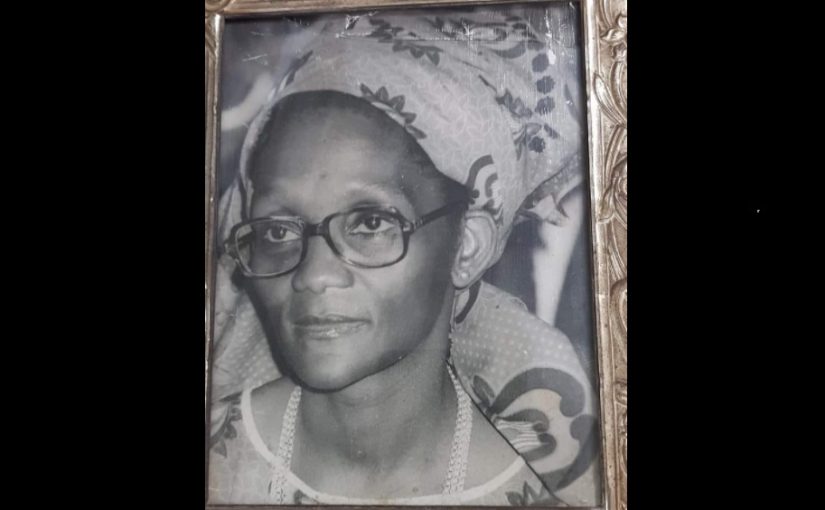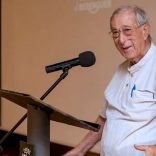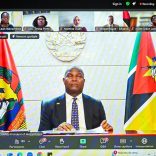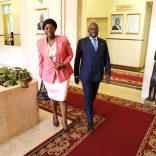Visit by senior Mozambican judge to Israel condemned - AIM report
Mozambique: Eulália Celeste de Sansão Muthemba

Image: Social Media @ Esaúú Cossa on Facebook
Eulália Celeste de Sansão Muthemba, was born on October 21, 1945, in Umbeluzi, Maputo, the daughter of a family of nationalists, notably her uncle, Mateus Sansão Muthemba, and Josina Machel, her cousin.
Eulália’s own nationalist streak emerged at an early age, the liberation of Mozambique from the colonial yoke becoming an end in itself.
The Muthemba family, of a certain education and social status, was a victim of PIDE persecution on account of its blatant opposition to the colonial regime. Even so, it served as a rear-guard for the clandestine fight, sending militants to Tanzania to swell the ranks of the National Liberation Front.
Eulália Muthemba spent her childhood between the cities of Xai-Xai and Maputo, where she completed her primary and secondary education.
In the 1960s, when the strategy of eradicating the colonial system was seething, and with the unification of liberation movements around the Liberation Front of Mozambique (Frelimo), this clandestine fight overflowed and hundreds of young people mobilised for the cause.
Eulália Muthemba, still young but politically mature, set off for Dar-es-Salaam, via Swaziland, to join Frelimo, but her escape ended in the worst possible way, in South Africa. The apartheid regime, which had always collaborated with the Portuguese fascist regime, arrested and deported Eulália Muthemba, as it did to hundreds if not thousands of other young people.
Eulália Muthemba was arrested and sent back to Lourenço Marques, where she spent three years imprisoned in Lourenço Marques and Mabalane, Gaza.
Despite everything, her convictions remained firm, finding ample reason to believe that she was fighting justly and unequivocally for the independence and freedom that would surely come.
Eulália Muthemba did not return to active struggle, as she was closely watched by the Portuguese political police.
With the coup in Portugal in April, 1974, Eulália Celeste de Sansão Muthemba travelled to Tanzania for the first time, in May, 1974. On this trip, she had the opportunity to meet President Julius Nyerere, anticipating preparation for national independence.
The delegation included Matias Mboa, José Craveirinha, Josefate Machel, Rogério Ndzawana, Malangatana Valente Nguenha and Rui Nogar. This group joined Samora Moisés Machel and Marcelino dos Santos.
In an interview about the preparation of the biography of her uncle Mateus Sansão Muthemba, who had dared write to Salazar about the atrocities of colonialism in Mozambique, she described him as “… someone who disinterestedly did everything, waging life itself on making Mozambique’s independence a reality. Thus, systematising his achievements, the most remarkable feats, is the commitment of this generation”.
Regarding national liberation, Eulália Muthemba said: “If we accept that this exercise is a dialogue between the past and the present, then we agree that the responsibility of passing this testimony of the history of Mozambique on to the next generations must done as objectively as possible, for the sake of the country’s harmony.”
Eulália Celeste de Sansão Muthemba has herself now left for eternity, suddenly, on March 19, 2021, in the city of Maputo. She leaves her husband Feliciano Gundana, himself a national hero of the liberation struggle, a first-rate nationalist and outstanding leader, and daughters Nadakawanika, Tapuwa and Muhlavasi.
The legion of former combatants in the national liberation struggle mourns the loss of one of their most esteemed comrades.
It is a huge void for the family, for society, and for Mozambique, a country that she served, and to which she dedicated her whole life.












Leave a Reply
Be the First to Comment!
You must be logged in to post a comment.
You must be logged in to post a comment.